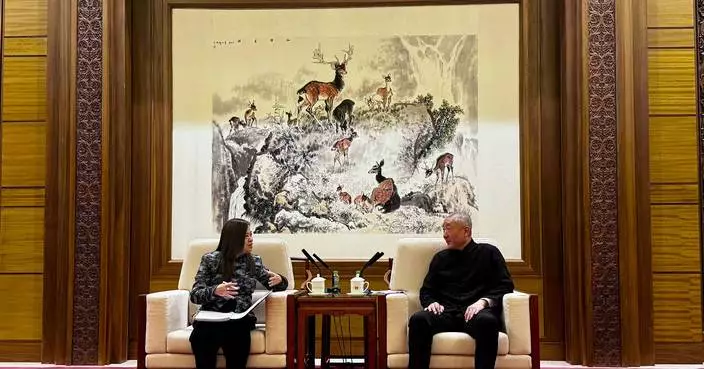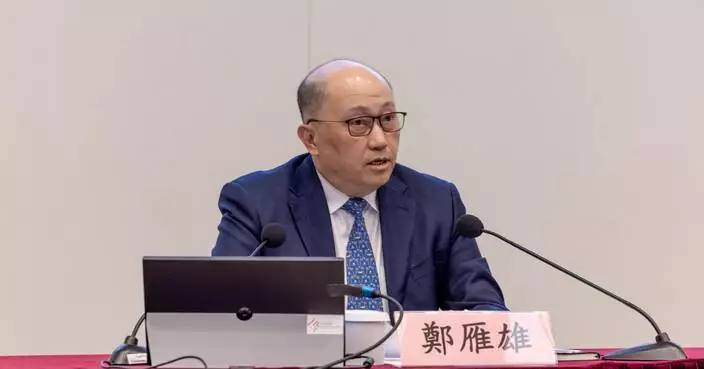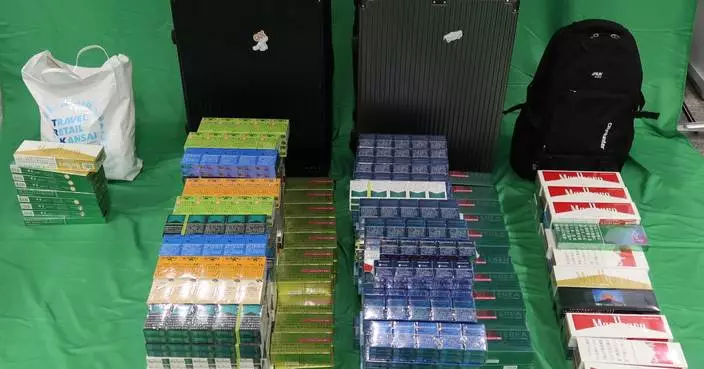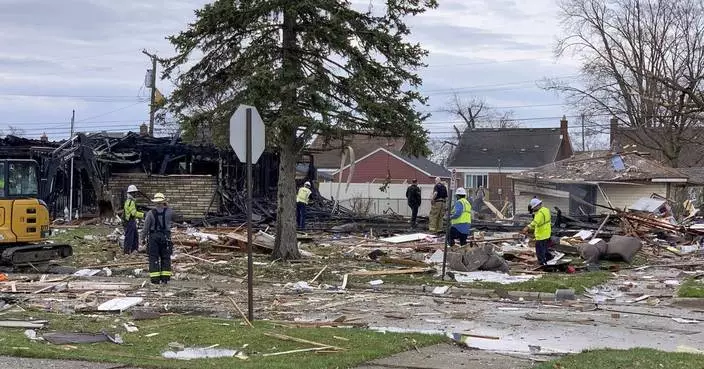CHP follows up on cluster of Candida auris carrier cases
The Centre for Health Protection (CHP) of the Department of Health is today (August 12) following up on a cluster of Candida auris carrier cases announced earlierinvolving a residential care home for the elderly (RCHE) in Sha Tin, with a new case recorded. The CHP reminded members of the public about the proper use of antimicrobials and maintaining personal hygiene against infection.
The CHP received notification from the Hospital Authority (HA) that an 83-year-old male resident of the aforementionedRCHE, who was earlier admitted to Prince of Wales Hospital, was confirmed to have carried Candida auris upon testing. The patient, with underlying illnesses, has no symptoms of infection and is in stable condition. Epidemiological investigations by the CHP revealed that the patient shared the same room with one of the cases (another 83-year-old male patient) of the cluster at the RCHE that was earlier announced (involving two cases related to clusters of Candida auris cases in Prince of Wales Hospital and Shatin Hospital as well as one infection case at the RCHE). Currently, the Candida auris carrier cases cluster of the RCHE concerned involves two patients, including the case announced today. The two other patients earlier announced had passed away due to their underlying medical conditions.
The CHP has immediately carried out follow-up actions and site inspection at the RCHE, and found that the physical limitations at the RCHE have contributed to the transmission of Candida auris in the RCHE. In light of the new case in the RCHE, the CHP has informed the Social Welfare Department and the Community Geriatric Assessment Team of the HA to strengthen the relevant support to the RCHE and assist the RCHE to implement appropriate infection control measures. The epidemiological investigation of the CHP is ongoing.
Apart from the follow-up measures mentioned above, the CHP has again provided infection control advice and training to staff of the RCHE. The RCHE is advised to follow the prevailing guidelines to enhance infection control measures, including appropriate placement of carrier residents, strict implementation of contact precautions, enhancement of environmental cleansing and disinfection, and the use of dedicated medical equipment, toilet and bathing facilities, to prevent the spread of Candida auris. The CHP will keep in close liaison with the RCHE concerned, monitor the situation of the residents and ensure the RCHE has carried out the various infection control measures.
A spokesman for the CHP explained that Candida is a fungus commonly found in the natural environment, particularly in moist and warm environments. In humans, it is commonly found in body sites such as the oral cavity, the digestive tract, the skin and the vagina. It is a common fungus living on or in the human body but can occasionally cause infections, especially in individuals with impaired immunity.
Among the different candida species, Candida auris is more drug-resistant. Infections vary from being mild to potentially life-threatening or fatal, depending on which part of the body is affected and the general health condition of the patient. The spokesman stressed that proper use of antimicrobials and maintaining personal hygiene, especially hand hygiene, are crucial to the prevention of the emergence and cross-transmission of Candida auris.

Source: AI-generated images
Hong Kong's sewage surveillance programme wins HKIE 50th Anniversary Legacy Award
Following the receipt of the Gold Award of the International Water Association Project Innovation Awards last August, the Territory-wide Sewage Surveillance Programme has achieved another remarkable milestone by winning the Excellence Award in the Innovation Category (2010-Present) of the Hong Kong Institution of Engineers (HKIE)'s 50th Anniversary Legacy Award. This honour not only recognises the programme's groundbreaking achievements in engineering technology, but also highlights its outstanding contributions to safeguarding public health and protecting the well-being of Hong Kong citizens, making it a source of pride for Hong Kong's engineering community.
To celebrate its 50th anniversary, the HKIE established the Legacy Award, comprising three categories, namely Innovation, Industry, and Infrastructure, to honour exceptional engineering projects and technologies that have delivered profound benefits to the engineering sector, industry and society in Hong Kong and globally over the past half-century. The Territory-wide Sewage Surveillance Programme stood out among more than 100 nominated projects as one of the 19 award recipients, securing the Excellence Award in the Innovation Category. This success is attributed to its forward-thinking technological applications, interdisciplinary collaboration, and significant societal impact. The judging panel highly commended the programme for leveraging innovative technology to support epidemic prevention and control, showcasing the professionalism and creativity of Hong Kong's engineering sector.
The award presentation ceremony was held last night (April 3) during the HKIE's 50th Anniversary Dinner. The Director of Environmental Protection, Dr Samuel Chui, together with the Director of Drainage Services, Mr Ringo Mok, and the Controller of the Centre for Health Protection of the Department of Health (DH), Dr Edwin Tsui, led a delegation to receive the award.
During the COVID-19 pandemic, the Environmental Protection Department (EPD), in collaboration with the Drainage Services Department and the DH, formed an interdepartmental team that successfully developed a real-time predictive model based on sewage virus monitoring. By analysing SARS-CoV-2 concentrations in sewage, the system accurately tracked viral transmission dynamics within communities and identified potential outbreak hotspots in advance, providing critical data support for the Government's swift deployment of anti-epidemic measures. The system's efficient operation not only helped detect hidden cases and break transmission chains, but also significantly reduced new infections during peak outbreaks, bringing Hong Kong's pandemic under control within two months.
Dr Chui said, "The success of this technology is not just a breakthrough in science and engineering. It's also a story of resilience and dedication. At the most challenging times of the pandemic, our team worked tirelessly around the clock to protect the health of every citizen. The fact that this technology successfully uncovered hidden transmission chains and helped Hong Kong emerge swiftly from the shadow of the pandemic made all our efforts worthwhile. We are also deeply grateful for the public's support. Winning the HKIE's 50th Anniversary Legacy Award is not only a recognition of our team but also a powerful reflection of the collective efforts of all Hong Kong people in combating the pandemic together."
He added that the Government has expanded the application of sewage surveillance technology to monitor other infectious diseases, such as seasonal influenza, to build a more comprehensive public health surveillance network. Looking ahead, the EPD will actively share this successful experience with Belt and Road (B&R) countries, fostering international collaboration through technology exchange to support the vision of green development under the B&R Initiative, and contribute Hong Kong's expertise to global public health efforts.
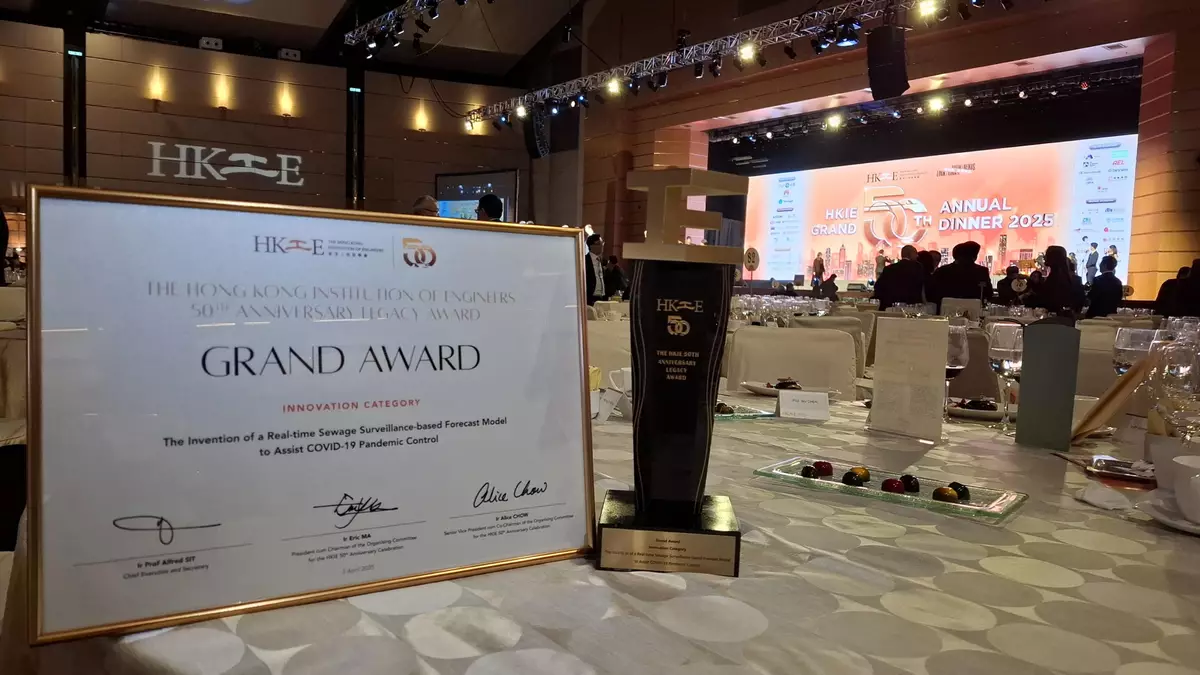
Hong Kong's sewage surveillance programme wins HKIE 50th Anniversary Legacy Award Source: HKSAR Government Press Releases
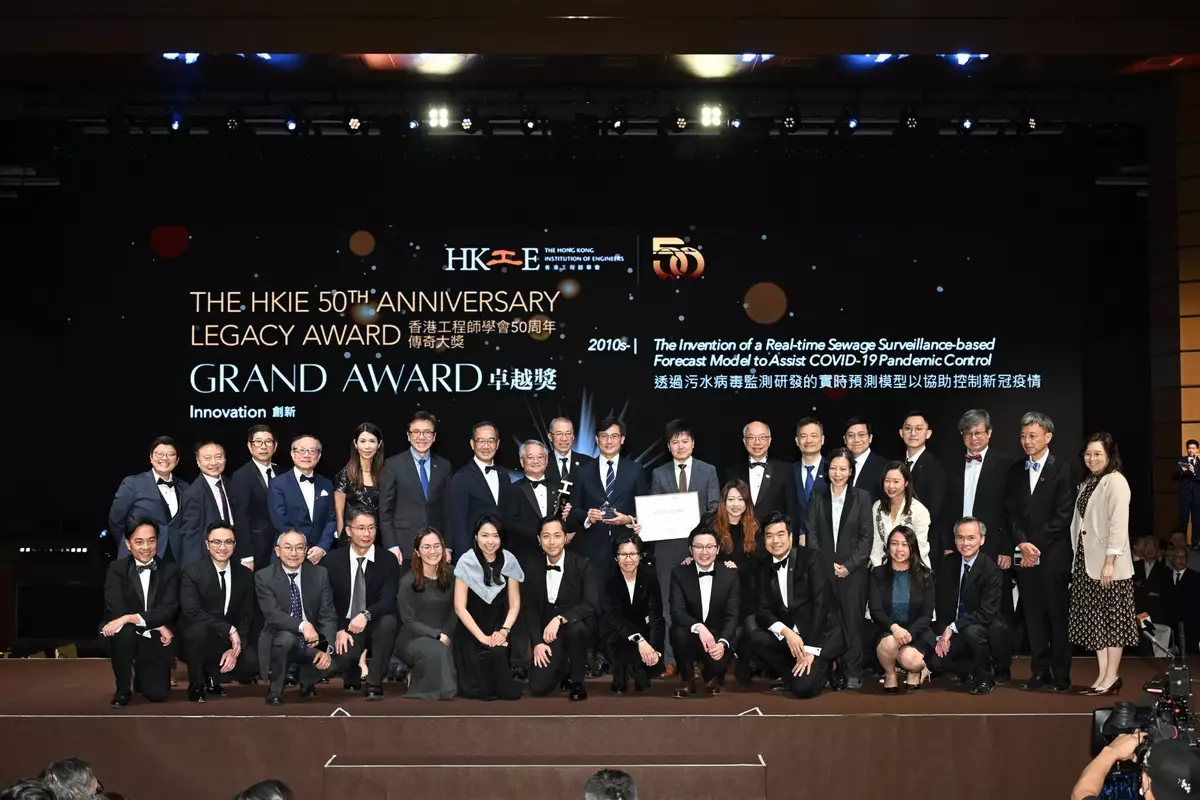
Hong Kong's sewage surveillance programme wins HKIE 50th Anniversary Legacy Award Source: HKSAR Government Press Releases
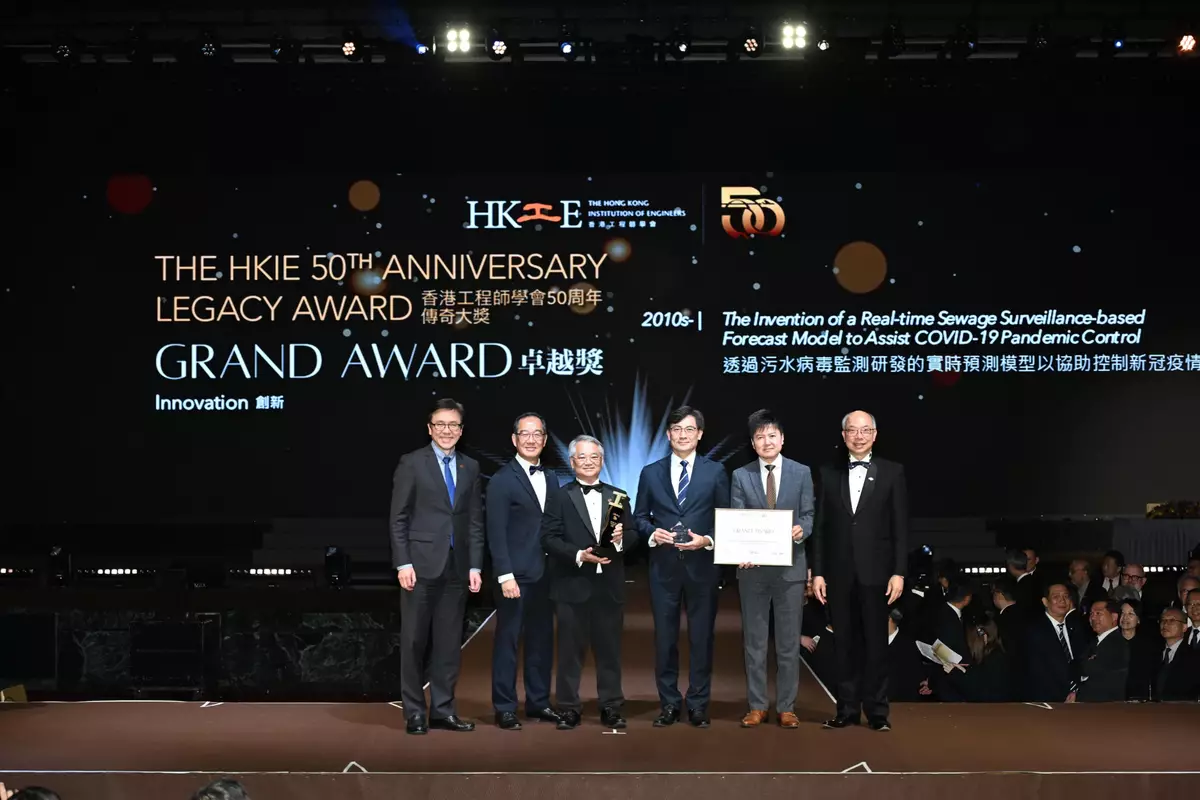
Hong Kong's sewage surveillance programme wins HKIE 50th Anniversary Legacy Award Source: HKSAR Government Press Releases







